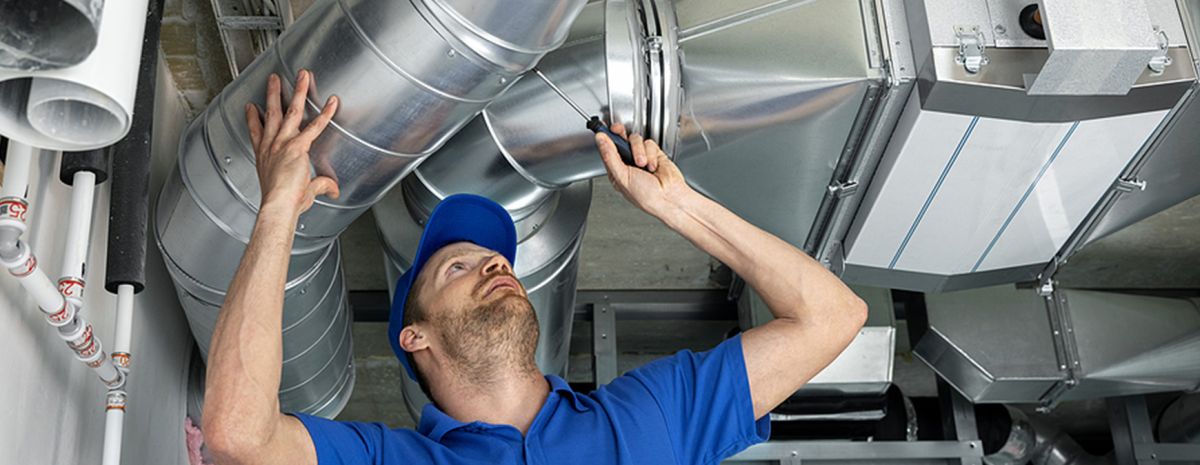RSI is a Great Training Option for Everyone
Learn more about how we can prepare you to advance your career.
HVAC school in Arizona can typically be completed in a matter of months to under two years, depending on the type of program you choose.
At The Refrigeration School (RSI) in Phoenix, programs run from 6 to 15 months!
Use this handy guide to find out how long HVAC training programs are and what makes the most sense for you.
How long are Arizona HVAC training programs?
At RSI, there are three different HVAC training programs to choose from:
- Refrigeration Technologies
- Electro-Mechanical Technologies
- Associate of Occupational Studies in Mechanical Maintenance Engineering
Refrigeration Technologies – 6 months
HVAC technicians have many responsibilities, primarily controlling the temperature and indoor air quality of buildings, including refrigeration. An HVAC tech may need to install or clean HVAC systems, test HVAC equipment, repair parts, keep good records, and talk with clients about the situation.
Get Started on the Path to a New Career
Fill out our form to learn how we can help you change your life.
RSI’s Refrigeration Technologies program trains students in the fundamentals of comfort systems and refrigeration.
In just 6 months, students can be prepared to seek out jobs such as:
- HVAC Technician
- HVAC Installation Technician
- Refrigeration Service Technician
- Low-Temperature Field Technician
- Restaurant and Retail Refrigeration Technician
- Commercial Refrigeration Technician
Program courses include:
- Fundamentals of Electricity
- Fundamentals of Refrigeration
- Residential Comfort Systems
- Commercial Comfort Systems
- Refrigeration Systems and Practices
- Advanced Troubleshooting
Electro-Mechanical Technologies – 9 months
RSI’s Electro-Mechanical Technologies program lasts 9 months.
In addition to the fundamentals of HVAC classes, students in this program are introduced to Photovoltaic (PV) Science, which is used in many solar powered systems. PV devices convert solar energy directly into electrical energy.
Arizona boasts the fifth-most installed solar PV capacity in the United States. This state gets a lot of sunshine!
After completing the program, students may look for jobs such as:
- Power Plant Field Technician
- Facilities Maintenance Technician
- Maintenance Electrician
- Boiler Operator
- Air Conditioning Technician
In addition to the classes offered in Refrigeration Technologies, program courses also include:
- Fundamentals of Solar
- Residential Electrical Wiring
- Commercial Electrical Wiring
Associate of Occupational Studies in Mechanical Maintenance Engineering – 15 months
For an investment of 15 months, students may choose to earn an Associate of Occupational Studies in Mechanical Maintenance Engineering.
This program includes everything offered in the Electro-Mechanical Technologies program with additional courses.
For folks looking to level up in their careers, good news: This degree may qualify someone to work in entry-level positions servicing large, complex systems in the HVAC industry.
With this degree, students may seek out jobs in Arizona such as:
- Engineer/Technician
- HVAC Service Technician
- Boiler Operator
- Facilities Maintenance
- Restaurant & Retail Service Technician
- Commercial Refrigeration Technician
- Maintenance Electrician
In addition to the coursework offered in the Electro-Mechanical Technologies program, additional courses include:
- Basic College Mathematics
- English Composition
- Principles and Applications of Air
- Motors and Applications
- Predictive Maintenance and Piping Systems
- Transformers and Technical Math
- Cooling Towers and Maintenance
- Chillers
- Fundamentals of Boilers
- Boilers and Boiler Systems
- Preventative Maintenance and Planning
- Computer Applications and Decision Making
- Entrepreneurship
How do I get my HVAC license in Arizona?
The Arizona Registrar of Contractors handles HVAC licenses in Arizona. It is possible to apply for a license as an independent contractor in the state of Arizona. There is an application packet from their website that walks you through all the steps.
You will need to choose a license classification to test under, such as Comfort Heating, Ventilating, Evaporative Cooling (C-58) or Air Conditioning and Refrigeration, including Solar (C-79).
Then you would need to pass a test with a score of at least 70%. Next, you would need to submit all the proper paperwork and pay the appropriate fees to obtain a license to work.
What is the job outlook for HVAC techs in Arizona?
New job opportunities are likely in the future for HVAC techs in the Grand Canyon State, according to predictive data from Career One Stop, which is sponsored by the U.S. Department of Labor.
There is an expected 11% job growth rate for HVAC techs in Arizona between now and 2030, with 220 projected job openings every year.*
If you are ready to start the process of enrolling in HVAC school in Phoenix, Arizona or if you are ready to learn more, please call an RSI representative at 1-888-671-5803. Your future career could be waiting for you!
Curious to learn more about how training for HVAC career opportunities in Arizona? Find out about why to attend HVAC school in Phoenix.
*According to BLS data Arizona employed 7,950 Heating, Air Conditioning, and Refrigeration Mechanics and Installers (499021) through May 2021 http://data.bls.gov/oes.
Additional Sources
This blog has been labeled as archived as it may no longer contain the most up-to-date data. For a list of all current blog posts, please visit our blog homepage at https://www.rsi.edu/blog/




